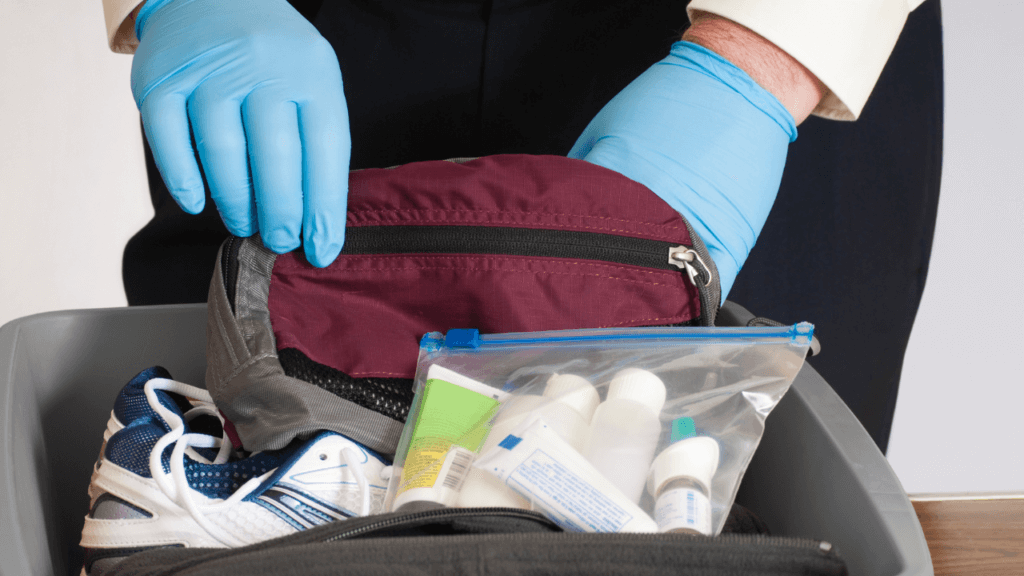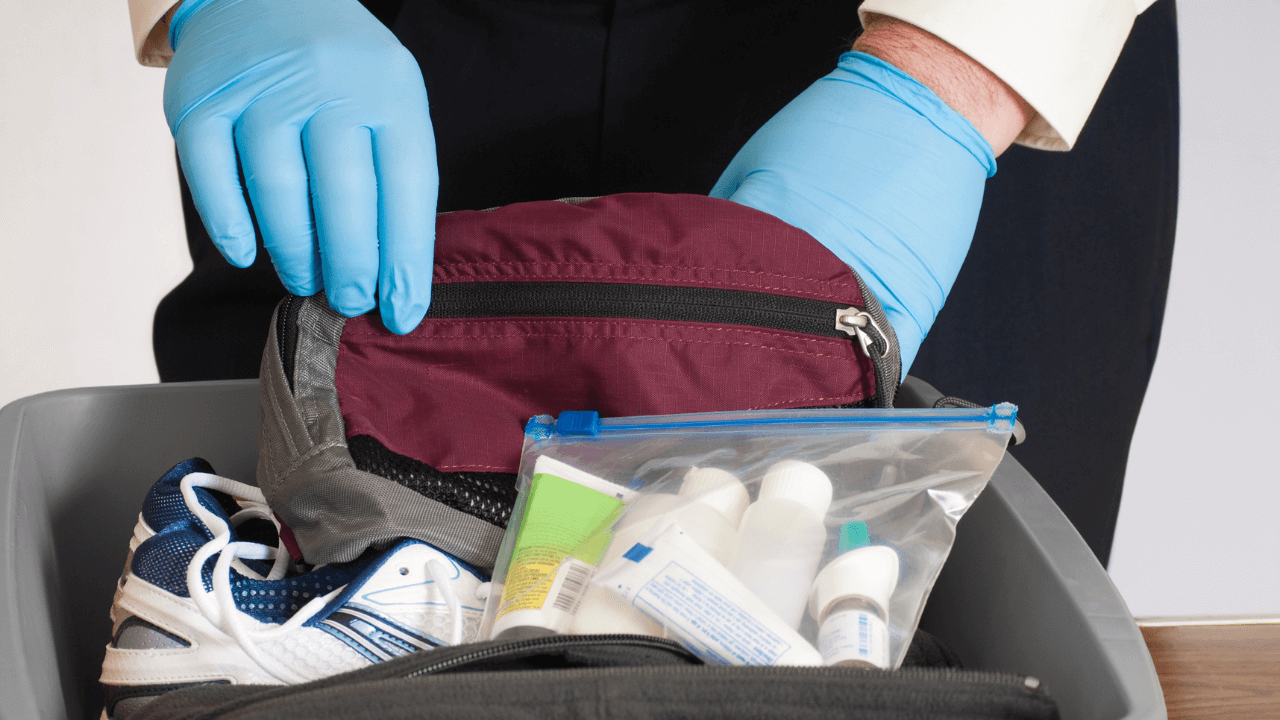
As a major New York City airport, the JFK is one of the busiest airports in the world. More than 90 airlines operate out of JFK, with flights to all continents except Antarctica.
As with any airport, you should not travel through JFK while transporting drugs illegally. This can result in serious consequences, including significant time behind bars. If you are arrested for drug possession at JFK, it is important to understand the legal implications in order to formulate the best legal defense strategy. Contact a criminal defense lawyer right away.
This article provides comprehensive information about New York drug laws and what you should do if you are arrested for drug-related offenses at JFK.
Overview of Drug Laws and Enforcement at JFK Airport
The Transportation Security Administration (TSA) has jurisdiction at screening areas at JFK, which means that at these locations, federal drug laws are applicable. However, outside of the screening areas, state drug laws are enforced.
Key Federal Drug Laws
The main legal framework for federal drug laws is the Controlled Substances Act (CSA). The CSA divides drugs into five categories:
- Schedule I: These are drugs that have no medical use and a high potential for abuse. There is no accepted safe use, except under medical supervision. Schedule I includes drugs such as marijuana, LSD, ecstasy, heroin, DMT, and more. Note that some states like New York do allow some use of marijuana.
- Schedule II: These drugs have a lower potential for abuse and risk of psychological dependence. They also have a moderate risk of physical dependence and accepted medical uses. Schedule II includes anabolic steroids and intermediate-acting steroids.
- Schedule III: These drugs have a low abuse potential and accepted medical uses. However, they have a high risk of psychological dependence and/or moderate risk of physical dependence.
- Schedule IV: This category of drugs include longer-acting barbiturates.
- Schedule V: These include some preparations such as codeine and opium.
Drug Possession, Drug Distribution, and Drug Trafficking
Federal law treats drug possession differently from drug trafficking. Drug possession is generally associated with smaller amounts of drugs for personal use. This can be a misdemeanor or a felony and is less serious than drug trafficking, which generally involves a larger amount of drugs being found on a person when they are arrested. If law enforcement believes the accused is intending to sell drugs, they will be charged with drug trafficking. Illegal distribution of prescription drugs can also result in drug trafficking and drug distribution charges.
If someone unknowingly or knowingly physically possesses drugs that belong to someone else, they could be charged with constructive possession. Also, possessing the key to a locked container with drugs inside can constitute constructive possession.
New York State Drug Laws
As mentioned, if someone is arrested outside of the TSA screening areas while still in JFK Airport, they will be charged under New York state drug laws.
New York identifies hundreds of different controlled substances under its public health laws. Like with federal law, New York state law divides controlled substances into five categories. New York’s scheduling of drugs is similar to that of federal law. However, despite marijuana being considered a Schedule I controlled substance under New York state law, it is legal for an adult at least 21 years of age to possess a certain amount of marijuana.
Drug possession in New York can be a misdemeanor or a felony charge, depending on the circumstances of the alleged criminal act.
- Class A-1 felony: Charged when someone is caught with eight or more ounces of substances containing a narcotic drug or 5,760 milligrams of methadone. This can result in 8 to 20 years in prison or a $100,000 fine.
- Class B to Class E felonies: A minimum of one year to a maximum of nine years in prison. Fines can range from $15,000 to $30,000.
- Class A misdemeanor: Charged when someone possesses one to five pounds of marijuana or five ounces to two pounds of concentrated marijuana product. This can result in less than a year in jail.
- Non-criminal violation: Charged when someone possesses three ounces to one pound of marijuana or 24 grams to five ounces of marijuana concentrate. This will result in a fine of no more than $125.
Someone may be found guilty of selling drugs if the prosecution can prove intent to transfer the substance and the ability to do so. There are five degrees of severity for a charge of illegally selling drugs. The degree of severity depends on the circumstances of the alleged criminal act.
- A fifth degree charge of illegally selling drugs is considered a class D felony
- A fourth degree charge is a class C felony.
- A third degree charge of illegally selling drugs is a class B felony
- A second degree charge is a class A-II felony.
Being found guilty of a first-degree charge will result in a class A-I felony on the defendant’s criminal record. If someone is found guilty of being a major drug trafficker, they also will be facing an A-I felony.
Penalties for selling drugs are harsher for more serious degrees of felonies. The punishment can range from one year to life in prison.
Role of Agencies in Drug Enforcement
The TSA is in charge of overall security of transportation systems in the U.S., including at airports. The TSA is mainly focused on preventing terrorism and violence and does not actively search passengers for drugs. However, if the agency does discover illegal drugs on a person, it will detain them and hand them over to another agency like the Drug Enforcement Agency (DEA), which is in charge of enforcing federal drug laws.
Another agency that may become involved is the Port Authority of New York (PANY), which is responsible for enforcing state and city laws. Therefore, PANY will likely be the agency dealing with alleged drug law violations that occur outside of TSA screening areas at JFK Airport.
Common Scenarios Leading to Drug Arrests at JFK Airport
There are a variety of common scenarios that could result in someone being arrested for violating drug laws at JFK Airport. One potential scenario is possession of a controlled substance that violates the law. This could happen when someone attempts to transport illegal drugs in a checked bag, in a carryon bag, or on their person.
That said, many travelers end up violating drug possession laws by accident. For example, someone may run into trouble with prescription medication at JFK Airport; if they are not carrying proper documentation for a legitimate prescription, it could result in a possession charge.
Drug trafficking also occurs at JFK Airport when someone tries to smuggle drugs with the intent of selling and distributing them. Usually, this type of charge involves larger amounts of drugs or cash.
Finally, use of drugs at airport facilities or on aircraft is prohibited. Doing so can result in a criminal charge as well.
Potential Consequences of Drug Convictions
Drug convictions have various legal consequences that can range from probation to life in prison.
In addition, if someone is in the U.S. on a visa or green card, having a felony drug conviction can result in being deported and permanently banned from the country. The person may end up in prison if caught trying to enter the U.S. after a permanent ban as a result of a felony drug conviction. Additionally, someone can be barred from becoming a naturalized citizen.
Moreover, because many employers require a criminal and background check, a felony drug charge can deter potential employers from hiring. Also, felony convicts are prohibited from holding certain types of professional licenses. If someone already has a professional license, a conviction could result in it being suspended.
How a Lawyer Can Assist Someone Arrested for Drugs at JFK Airport
Anyone facing a drug charge at JFK airport should immediately contact an attorney. An experienced defense attorney can, among other things:
- Represent their client at a bail hearing and try to secure a pretrial release
- Assess any weaknesses in the prosecution’s case and begin negotiating with authorities for reduced charges or alternative sentencing
- Represent their client at trial if the charges are not dismissed and a plea agreement cannot be reached
- File an appeal if there is a conviction
There are various options for a legal defense strategy against a drug charge after being arrested at JFK Airport.
- Challenging the search and seizure: It is possible that law enforcement officials violated the defendant’s legal rights during the search and seizure.
- Challenging the arrest and detention: The validity of the arrest and detention procedure can be challenged in some cases.
- Lack of knowledge or intent: One potential argument is to deny having knowledge of possessing illegal drugs. Also, it is possible to argue against a trafficking charge by claiming the defendant did not intend to sell or distribute the controlled substance.
- Lawful possession: Another option may be to argue that the defendant was legally in possession of the substance in question. For example, they may have had a valid prescription for it.
- Negotiating with prosecutors: A defendant can try to negotiate with prosecutors to potentially obtain a plea deal or an agreement to a diversion program instead of prison time.
FAQs
Realize you have the right to remain silent. Do not physically resist and try not to be combative in anyway. Ask for access to legal representation from an attorney before answering any questions during interrogations.
Yes. Federal authorities may detain you if you are caught in possession of drugs.
A lawyer can help with protecting your legal rights throughout the process, including the bail process, court trial, and appealing a conviction if necessary.
You have the right to remain silent and the right to an attorney.
A judge will determine the bail required for drug charges at JFK Airport. The more serious the crime, the higher the bail will likely be.
Yes. Having drug charges on your criminal record can mean being deported and potentially a ban on re-entering the U.S. or a prohibition on becoming a naturalized citizen.
It can take several months to several years for drug cases in New York to be completed.
A drug conviction can not be removed from one’s record, except in the case of some marijuana-related convictions.
Contact Rosenblum Law Today
If you have been arrested for drugs at JFK Airport, it is essential to obtain legal representation. Our attorneys at Rosenblum Law have decades of criminal defense experience, including defending drug charges. We will fight to get the charges reduced or dismissed, and if your case goes to trial, we will provide the most effective representation available. Contact Rosenblum Law immediately if you are facing drug charges in New York.







 888-815-3649
888-815-3649
